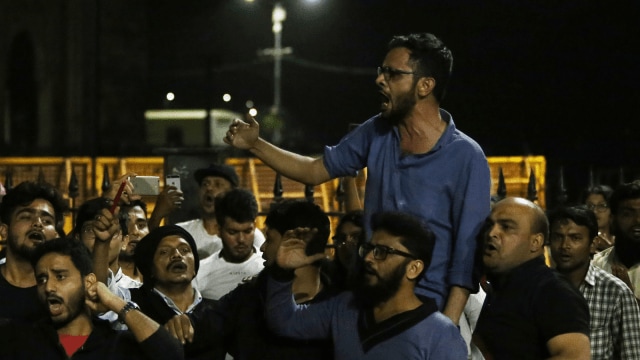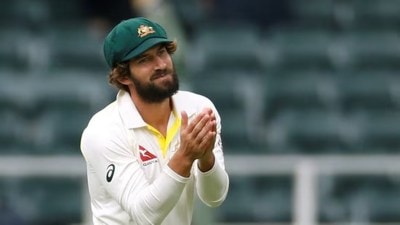2020 Delhi riots case: Statements against me suspicious, recorded months after arrest, Umar Khalid tells court
Umar Khalid, facing charges under UAPA in the 2020 Northeast Delhi riots conspiracy case, argued that statements recorded months after his arrest raise doubts on the prosecution’s case.
 Former JNU student Umar Khalid leading the protest in January 2020 in Mumbai. Students and other social activists in Mumbai continued protesting outside Gateway of India through out the night following attacks on students of JNU in national capital. Express Photo by Nirmal Harindran. Mumbai.
Former JNU student Umar Khalid leading the protest in January 2020 in Mumbai. Students and other social activists in Mumbai continued protesting outside Gateway of India through out the night following attacks on students of JNU in national capital. Express Photo by Nirmal Harindran. Mumbai.Activist Umar Khalid, who is facing charges of criminal conspiracy under Unlawful Activities (Prevention) Act in connection to the 2020 Northeast Delhi riots larger conspiracy case, told a trial court on Friday that the timing of recording of statements against him by the prosecution was extremely suspicious as these were recorded months after his arrest.
“You can catch hold of anyone 11 months after the event, get them to say anything and that is a UAPA case. The case of the prosecution is that I do not need evidence. I need statements. This is a case of no physical evidence… other than the speech,” senior advocate Trideep Pais, who is representing Umar Khalid, told the court.
He made the submissions before Additional Sessions Judge Sameer Bajpai, who is hearing arguments on charge in the “larger conspiracy” case linked to the 2020 riots in the Capital.
“If you have statements only, where will the case go? It will go nowhere,” Pais submitted. “How do you have a witness who supports chakka jam, who takes part in all the acts in this conspiracy and is still conveniently a witness? He doesn’t go there as a decoy or spy. He is a part of the activity. How is he not an accused or an approver,” he added.
“Those who have created WhatsApp groups planning the chakka jams have been made witnesses instead of accused and I, who never exhorted violence and spoke of peaceful protest, have been jailed,” the senior advocate argued.
According to the Delhi Police’s Special Cell, which is investigating the terror case, the riots in which over 700 people were injured and about 50 people died, were the result of a months-long “deep-rooted” conspiracy allegedly hatched after the Citizenship Amendment Bill was approved by the Cabinet in December 2019.
The alleged conspiracy was the creation of 23 protest sites – which operated 24×7 – in Muslim-majority areas close to mosques and main roads and the escalation of the protests into a “chakka jam” around the time when US President Donald Trump visited the Capital in 2020.
Among the 18 people booked under UAPA in the case, six are out on bail, and the rest have already spent over five years in prison. Arguments on charges will now resume on October 28. The trial will begin only after arguments conclude.







